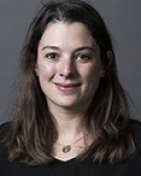
Two PhD graduates awarded the prestigious “Prix de la Chancellerie des Universités de Paris”
Two of our PhD graduates, Charlotte Constans and Guillaume Maimbourg, have been awarded the prestigious Prix de la Chancellerie des Universités de Paris for their thesis on therapeutic ultrasound, which they both conducted under the supervision of Jean-François Aubry at the laboratory Physics for Medicine Paris (Inserm/ESPCI Paris/PSL Université/CNRS).
Each year, the Chancellerie Prize reward the academic and scientific quality of PhD theses in all disciplines, following a highly selective process. During their PhD thesis, which they defended in 2018, Charlotte Constans and Guillaume Maimbourg both worked on ultrasound-based methods for brain therapy. Under specific conditions and parameters (emission time, intensity), ultrasound can be focused, through the skull, on precisely targeted regions of the brain for therapeutic purposes, providing a non-invasive alternative to heavier brain procedures. For instance, brain tumors can be burnt using high-intensity focused ultrasound rather than being surgically resected. Ultrasound has also a great potential for the treatment of neurodegenerative diseases or severe depressions through neuromodulation (i.e. modulation of the brain activity), which is currently performed using electric or magnetic stimulation limited to superficial brain areas, or implanted electrodes to reach deeper regions.

Crossing the skull with ultrasound is a challenge as the skull distorts the ultrasound wave. It is therefore required to shape appropriately the emitted ultrasound wavefront to correct for the skull-induced distortion. So far, numerous techniques have been developed using therapeutic probes consisting of thousands of transducer elements. The cost and cumbersomeness of such systems has hindered their transfer to clinics. During his thesis, Guillaume Maimbourg developed a new approach which only requires one single transducer combined with a polymer-made acoustic lens. This lightweight and cost-efficient solution could accelerate the clinical transfer of transcranial ultrasound therapy of the brain. Guillaume received the second Chancellerie Prize in the category “mechanics, electronics, informatics and technology”.

Charlotte Constans received the second Prize in the category “physics and chemistry” for her research on ultrasound neuromodulation. In collaboration with the team of Pierre Pouget at the Institute of Brain and Spinal Cord (ICM, Paris, France), she characterized the effect of low-intensity focused ultrasound in the brain, and applied it to modulate the brain activity of awake primates performing visual tasks. This work is a first step demonstrating the potential of focused ultrasound for modulating the brain activity with a great flexibility, enabling to target non-invasively either superficial or deep regions.
Charlotte and Guillaume are a great addition to the list of our PhD graduates rewarded with a Chancellerie Prize over the past years: Clément Papadacci (2015), Charlie Demené (2016), Mafalda Correia (2017), Olivier Villemain (2018).





